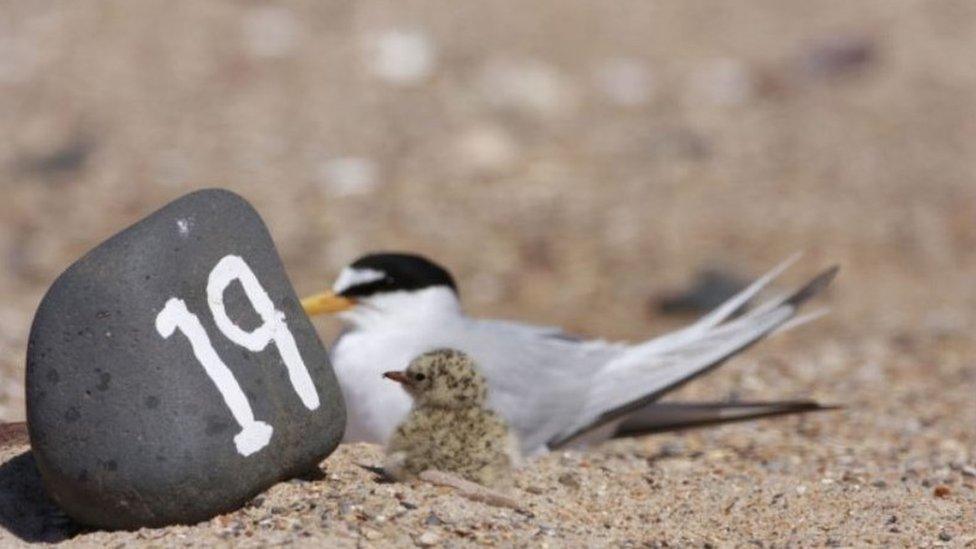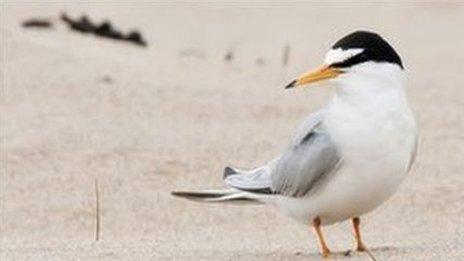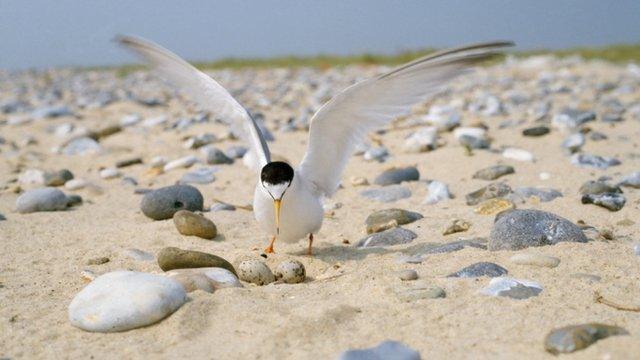'Round the clock' minders save 54 seabirds
- Published

Little terns are vulnerable to predators
A seabird colony has had its best breading season since 1990 after National Trust rangers camped out to protect nests.
Last year no chicks fledged at Long Nanny, near Beadnell, Northumberland, after breeding pairs were forced from their nests by torrential rain.
From May this year five rangers and volunteers took it in turns to camp and monitor nests for three months.
The National Trust said 54 fledglings had been successfully reared.
A spokesman for the trust said the chicks had left the beach in the past few days to migrate to Africa.
Little tern numbers have been in decline since the 1980s, with fewer than 2,000 breeding pairs left in the UK.
Weighing about the same as a tennis ball, little terns are one of the smallest seabirds in the UK.

Rangers and volunteers monitored the sight 24/7 for three months
They lay camouflaged eggs on the beach, often close to the high water line, and are vulnerable to predators.
This year's breeding total is the highest number of little tern chicks to have survived at the site since 1990.
The volunteers and rangers also used a thermal detecting device to spot predators including foxes, peregrine falcons, crows and gulls and then chased them off.
Fey Young, assistant ranger at Long Nanny, said: "From keeping predators at bay to dealing with high tides, we have protected the site night and day for almost three months.
"We're extremely proud to have such a high number of fledglings and hope to see them again in a few years when they return to breed."
- Published9 May 2013

- Published24 July 2013

- Published10 July 2013
4.jpg)
- Published19 June 2013
4.jpg)